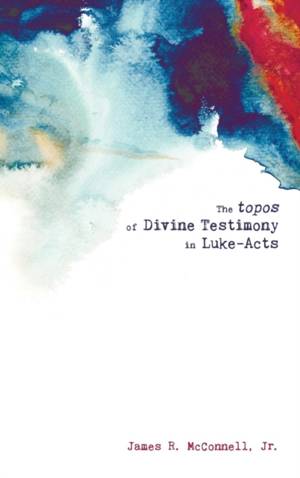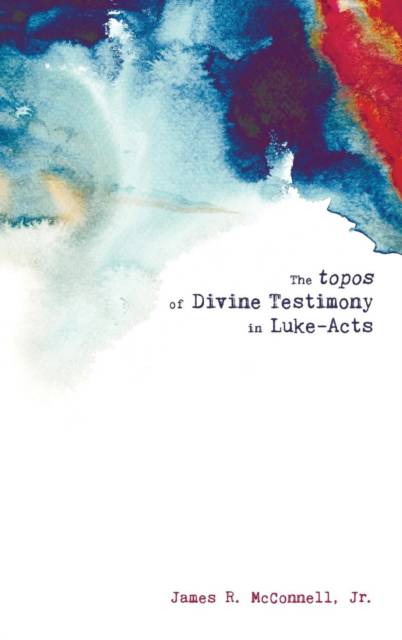
Bedankt voor het vertrouwen het afgelopen jaar! Om jou te bedanken bieden we GRATIS verzending (in België) aan op alles gedurende de hele maand januari.
- Afhalen na 1 uur in een winkel met voorraad
- In januari gratis thuislevering in België
- Ruim aanbod met 7 miljoen producten
Bedankt voor het vertrouwen het afgelopen jaar! Om jou te bedanken bieden we GRATIS verzending (in België) aan op alles gedurende de hele maand januari.
- Afhalen na 1 uur in een winkel met voorraad
- In januari gratis thuislevering in België
- Ruim aanbod met 7 miljoen producten
Zoeken
€ 98,95
+ 197 punten
Uitvoering
Omschrijving
In this study James McConnell addresses the concept of authoritative testimony in Luke-Acts. Specifically, he argues that particular elements in the narrative of Luke-Acts can be understood as instances of the topos of divine testimony through utterances and deeds, considered in some ancient rhetorical handbooks to be the most authoritative form of testimony when seeking to persuade an audience. McConnell claims the gods' testimony was used in ancient law courts and political speeches to persuade a judge of a defendant's guilt or innocence, and in attempts in public forums to convince others of a particular course of action. Similarly, the topos is used in ancient narratives and biographies to legitimate certain characters and discredit others. The instances of the topos of God's speech (both oral and through OT citations) and deeds in Luke-Acts are functioning in the same way.
Specificaties
Betrokkenen
- Auteur(s):
- Uitgeverij:
Inhoud
- Aantal bladzijden:
- 334
- Taal:
- Engels
Eigenschappen
- Productcode (EAN):
- 9781498227223
- Verschijningsdatum:
- 21/07/2014
- Uitvoering:
- Hardcover
- Formaat:
- Genaaid
- Afmetingen:
- 152 mm x 229 mm
- Gewicht:
- 616 g

Alleen bij Standaard Boekhandel
+ 197 punten op je klantenkaart van Standaard Boekhandel
Beoordelingen
We publiceren alleen reviews die voldoen aan de voorwaarden voor reviews. Bekijk onze voorwaarden voor reviews.









